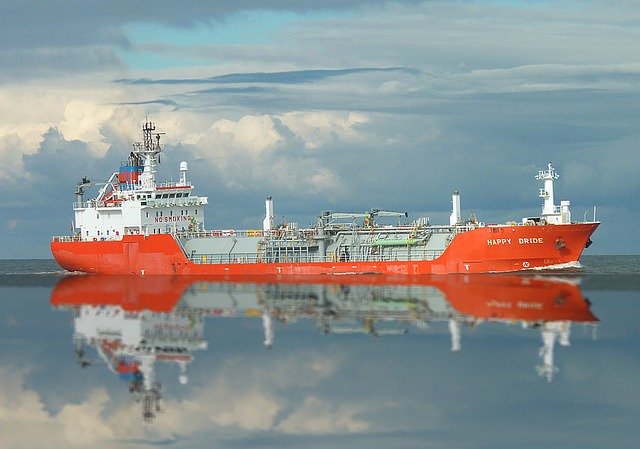
Arresting a Ship in Nigeria: Understanding the Legal Process and Implications
Introduction:
The arrest of ships is a legal action that can be undertaken in various maritime jurisdictions, including Nigeria. Ship arrest serves as a crucial mechanism for resolving maritime disputes, securing claims, and ensuring compliance with the law. This article aims to provide an overview of the process of arresting a ship in Nigeria, shedding light on the legal framework, requirements, and implications involved.
Legal Framework:
In Nigeria, the legal framework governing ship arrest is primarily based on the Admiralty Jurisdiction Act of 1991, which adopts many provisions from international conventions such as the International Convention on Arrest of Ships 1999. Additionally, Nigeria is a signatory to various international conventions and treaties that govern maritime affairs, such as the United Nations Convention on the Law of the Sea (UNCLOS).
Grounds for Arrest:
Ship arrest in Nigeria can be initiated based on several grounds, including maritime claims, breaches of contract, unpaid debts, salvage claims, damage caused by a ship, or violations of environmental regulations. It is crucial for claimants to establish a prima facie case, demonstrating the validity and enforceability of their claim before a court.
Procedure:
The process of arresting a ship in Nigeria typically involves the following steps:
- Filing a Claim: The claimant or their legal representative files an application for the arrest of the ship at the relevant High Court. The application should include detailed information about the ship, the nature of the claim, and the supporting documents.
- Provisional Arrest: Upon filing the application, the court may issue a warrant for the provisional arrest of the ship, granting the claimant temporary custody and control over the vessel.
- Security: To secure the release of the arrested ship, the claimant is usually required to provide security, such as a bank guarantee or cash deposit, equivalent to the value of the claim, along with additional costs and potential damages.
- Substantive Hearing: The court schedules a substantive hearing, where the claimant presents evidence and arguments supporting their claim. The shipowner or their representative has the opportunity to defend against the allegations and contest the arrest.
- Judgment and Execution: Following the hearing, the court will render a judgment, determining whether the arrest should be maintained or the ship released. If the claim is successful, the court may order the sale of the ship to satisfy the claimant’s demands.
Implications:
Ship arrest has significant implications for all parties involved, including shipowners, charterers, and claimants. For shipowners, an arrest can lead to operational disruptions, financial losses, reputational damage, and potential legal battles. Charterers may face similar consequences, impacting their ability to fulfill contractual obligations. On the other hand, for claimants, ship arrest provides a means to secure their claims and seek remedies for damages or unpaid debts.
Challenges and Considerations:
While ship arrest in Nigeria serves as an important legal recourse, there are certain challenges and considerations that parties should be aware of:
Jurisdictional Considerations: Determining the appropriate jurisdiction for ship arrest is crucial. In Nigeria the Federal High Courts has maritime jurisdiction, and it is important to file the claim in the appropriate court within the jurisdiction where the ship is located.
Timeliness: Acting swiftly is essential in ship arrest cases to prevent the ship from leaving Nigerian waters. Delays in initiating the legal process could result in the ship escaping the jurisdiction, making it difficult to enforce a claim.
Costs and Liabilities: The claimant must be prepared to bear the costs associated with ship arrest, including court fees, legal representation, security, and potential damages. These expenses can be substantial and should be carefully considered before initiating the arrest.
Disputes and Counterclaims: Shipowners may contest the arrest by filing counterclaims or challenging the validity of the claim. This can lead to protracted legal battles, prolonging the process and increasing costs for both parties.
Release of the Arrested Ship: If the court orders the release of the ship, it is essential for the claimant to ensure that their claim is adequately secured. In some cases, the court may require the provision of additional security or guarantees to protect the interests of the claimant.
Enforcement and International Cooperation:
Ship arrest in Nigeria is not limited to domestic waters. Nigerian courts can exercise jurisdiction over foreign-flagged vessels and arrest them if they are within Nigerian jurisdiction. However, enforcing a judgment or order obtained through ship arrest can be challenging, particularly if the shipowner or operator is based outside Nigeria.
To facilitate the enforcement process, Nigeria is a party to various international conventions and treaties, including the International Convention on the Arrest of Ships 1999 and the United Nations Convention on the Recognition and Enforcement of Foreign Arbitral Awards (New York Convention). These international agreements provide a framework for cooperation between countries and promote the enforcement of judgments obtained through ship arrest.
Additionally, the assistance of maritime legal practitioners with expertise in international law and cross-border enforcement can be invaluable in ensuring the successful enforcement of judgments obtained in ship arrest cases involving foreign parties.
Conclusion:
Arresting a ship in Nigeria is a legal mechanism aimed at securing maritime claims, seeking remedies for unpaid debts, damages, or breaches of contract, and enforcing compliance with the law. The process involves careful consideration of the legal framework, procedural requirements, and implications associated with ship arrest. Parties involved, including claimants and shipowners, should be aware of their rights and obligations and the potential challenges and costs involved. Navigating the complexities of ship arrest in Nigeria effectively requires expert legal guidance and adherence to proper procedures. By doing so, ship arrest can serve as an effective tool for resolving maritime disputes, protecting the rights of claimants, and upholding compliance within Nigeria’s maritime jurisdiction.

